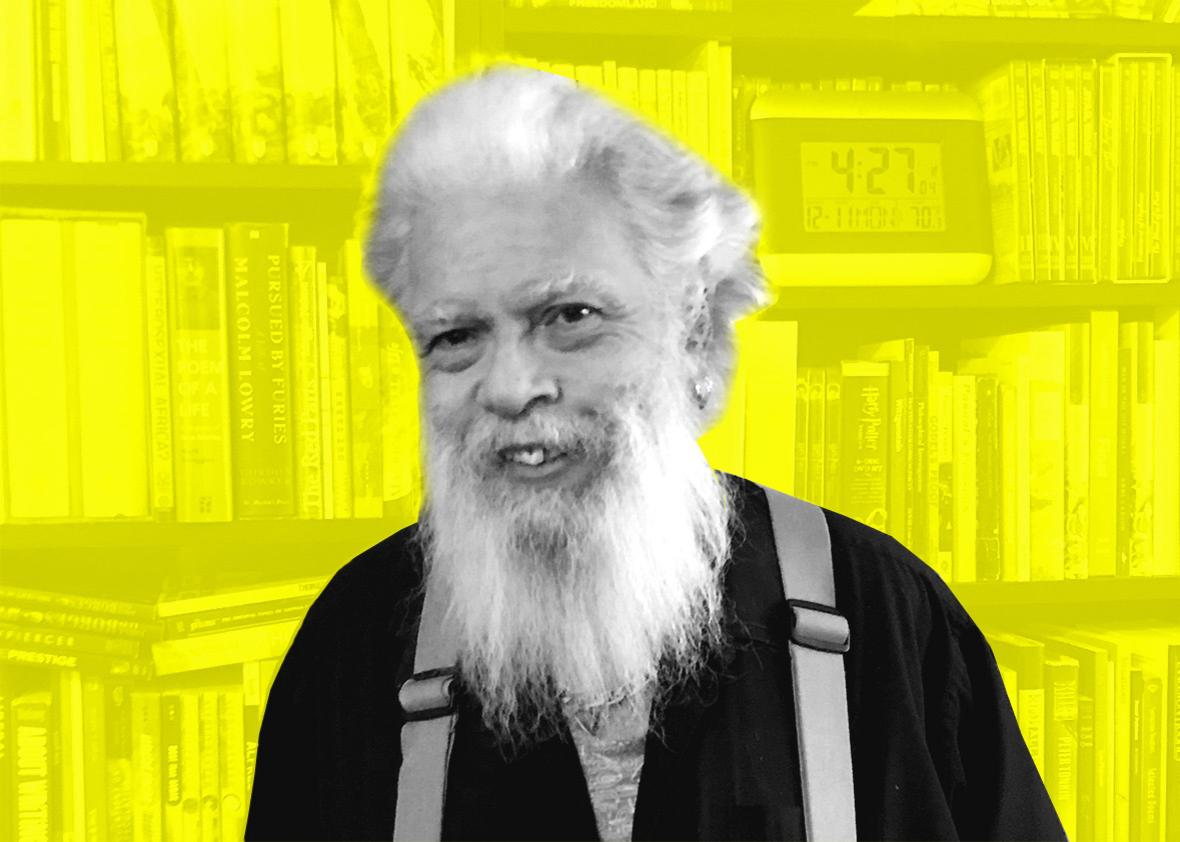This season on Working, we’re taking a look at some LGBTQ-specific jobs.
For more than 50 years, Samuel R. Delany has reigned as one of the most acclaimed voices in science fiction. In novels such as Dhalgren, Nova, and Trouble on Triton, he blends pulp conventions with French theory, stylistic experimentation with futuristic speculation. Though his stories often transport readers to distant stars, Delany—who is black and gay—has long been concerned with more immediate terrestrial topics as well. His novel The Tale of Plagues and Carnivals (found within the volume Flight From Nevèrÿon), for example, was one of the first fictional texts to confront the AIDS crisis. Similar explorations of race and sexuality permeate his output, often giving way to complex, and deeply personal, meditations on the limits of desire.
“I write about those things because those are the things that fill up my life,” Delany tells us in this episode of Working, which you can listen to via the player above. He suggests, however, that in many cases his own work was just an attempt to draw out themes that already simmered below the surface of the fiction he grew up reading in the ’40s and ’50s: “I was just taking what I had always seen as there and bringing it to the surface.”
As he proposes, all writing may, in one way or another, be an expression of desire. “I always assumed that probably Marx had some kind of fetish for workmen, which is why he wanted more of them in the world,” he jokes. In his own case, that means that his personal fetishes—most famously, his attraction to men with heavily bitten nails—often find their way into his stories. “That’s always what I wrote about,” he says, claiming that the practice goes back to childhood. “I started by writing my masturbation fantasies down in a notebook.” Eventually, he goes on to tell us, his mother found his journal and carted him off to a cigar-chomping psychotherapist who was given the mission of making the young boy more masculine. If the lessons stuck, it wasn’t entirely as intended: “I like bears, but I’m still not too hot on cigars.”
Over the course of this interview, Delany also explores his own writing process, which has been shaped, over the years, by his experience of dyslexia. “It made me very much aware of style, since everything had to be retyped and rewritten,” he says. “Sometimes I have to rewrite a paragraph five, 10, 12 times. Sometimes one will come out more or less correct the first time, except for the odd misspelling.”
Though he’s still writing these days—often with the help of an assistant, who “looks over my shoulder, sort of points to the extra letter or where I’ve done something stupid”—much of his work, especially shorter essays and memoiristic reflections, now appears on Facebook. There, he still focuses on pressing issues, though our literally and figuratively changing climate now sometimes leads him to topics such as ecological catastrophe. “We’re in a really strange state right now,” he observes. “The future does not look terribly good.”
Then, in a Slate Plus extra, Delany recommends some classic science-fiction titles that shaped his own writing and career. If you’re a member, enjoy bonus segments and interview transcripts from Working, plus other great podcast exclusives. Start your two-week free trial at Slate.com/workingplus.
Previous episodes in this series:
- How Does a Drag Queen Work?
- How Does a Bespoke Tailor Work?
- How Does a Queer Theorist Work?
- How Does a Gender-Reassignment Surgeon Work?
You can email us via working@slate.com.
Podcast production by Benjamin Frisch.
Audio recording by Erin McGregor.
